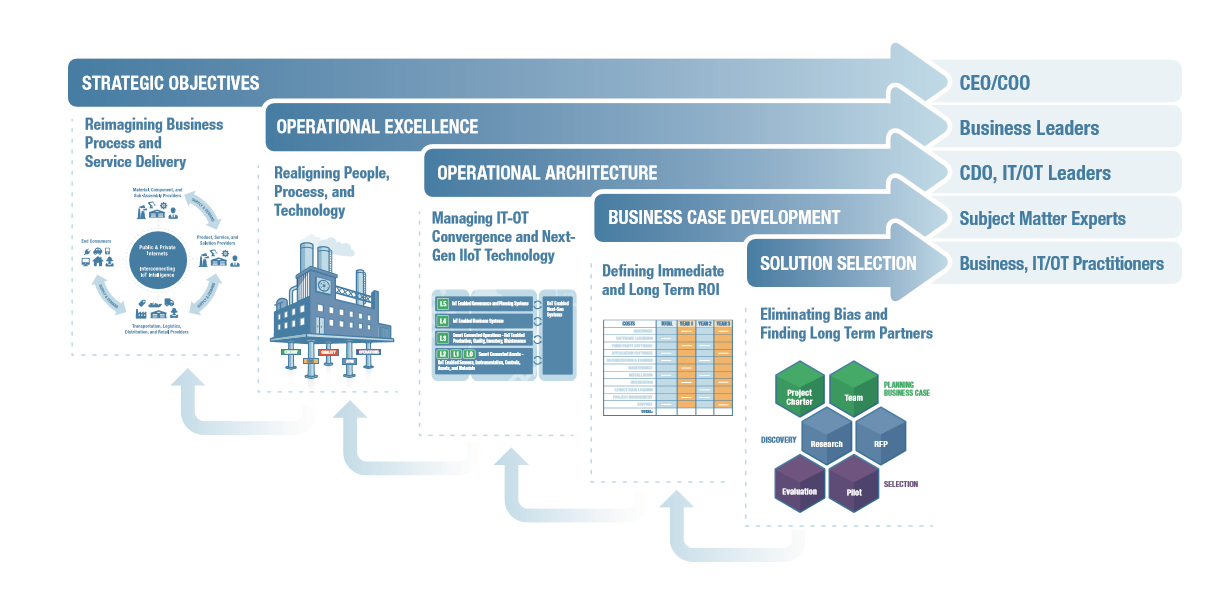Power Generation Companies Need a Framework for Digital Transformation
The power industry has a long history of embracing the benefits of digital technology. For decades, power plants have used remote sensing, networked communication, data aggregation, monitoring and control systems to optimize their generation, transmission and distribution systems.
The new level of digitalization ushered in by the 4th Industrial Revolution, is enabling power generators to be more competitive, through access to more meaningful analytics and insights to dramatically improve performance and flexibility. Digitalization is perhaps most significantly giving power generation companies the ability adopt new business models and improve business processes in light of new market conditions and greater regulatory demands.
Naturally, many utilities focus on the threat these revolutions pose to their business model, but substantial opportunities are available for those able embrace this transformation.
The challenges and opportunities of the 4th Industrial revolution context
The 4th industrial revolution is transforming businesses worldwide, adding sensing and communication technologies to turn machines and equipment into smart assets.
This revolution is making profound changes to the power industry. Renewables, distributed generation, and smart grids require entirely new capabilities and are reshaping the way that the energy market works.
The exponential increase in the number of sensors and amount of data that they must collect, manage and exchange is delivering new understanding and insight, but also an increasing need to convert information into action from the volumes of data extracted.
There are further challenges, with entrants from the digital economy disrupting the industrial landscape, while governments and regulatory bodies impose stricter standards and reporting measures.
The digital world will continue to evolve – mass data storage, secure remote access, artificial intelligence, decision support systems and predictive analytics will become mainstream. The current and next generation of power assets will have a number of lifecycle advantages when compared to older assets. Also, you can check Four key challenges for power generation companies.
Framework for Digital Transformation
Industrial companies today, including leading companies in the power generation sector, are pursuing Digital Transformation initiatives. 43% of utilities companies stated that they have already begun their journey with IIoT. What many companies are missing is a systematic approach to manage this transformation across all levels and functions of the organization. The LNS Research Digital Transformation Framework is designed to help industrial companies understand how to connect all of these simultaneous and interrelated initiatives. Find out how to achieve digitalization of power generation in times of transition.

- Strategic Objectives: At the highest level, power generation companies today need to be thinking about how many of these new technologies, like Big Data and next generation analytics, can disrupt and transform products, value chain business processes, and connected service delivery. An example would be providing instant visibility and coordination across an entire fleet of distributed power generation sources to rapidly dispatch and adjust generation capacity to meet shifting demands and take advantage of spot market pricing opportunities – all with great confidence in the combined assets’ ability to deliver.
- Operational Excellence: People, processes, and technology are the underpinnings of Operational Excellence initiatives and these initiatives are typically owned by the senior-most business function leaders in the organization and embraced by all plant operations personnel to be successful. Moving forward, power generation companies must continue to evolve their Operational Excellence initiatives as the continuous improvement engine of the company and the driving force for innovations.
- Operational Architecture: Traditionally, the Information Technology (IT) organization has owned Enterprise Architecture. Separately, automation, corporate engineering, and/or advanced control (often now referred to as operational technology or “OT”) has been responsible for the rest of the technology architecture at power plants. With the emergence of IIoT and related technologies, LNS Research recommends that organizations adopt an Operational Architecture approach that applies the formalized rigor and process of Enterprise Architecture to the entire IT-OT stack. Power generation companies need to create supporting and collaborative groups that incorporate both IT and OT and as the Chief Digital Officer emerges, the success of this new collaboration is a key part of their charter.
- Business Case Development: Business case development initiatives are most successful when deep subject matter experts that understand both the business/operational processes and the available technologies drive them. Identifying these experts can be a challenge, but often they are located in advanced control groups, hybrid IT/OT roles, are a leader within specific business functions, or are a technical fellow supporting the organization. It is important that power generation companies do not view technology investments as a one-off business case but rather as a business case journey that aligns with system architecture goals and supports long-term strategic objectives. More about Building a Digital Business Case
- Solution Selection: Often companies view Digital Transformation upside down, starting with solution selection, which then drives all other portions of the framework and as with solution selection, it is important to put the activities in context of broader initiatives. Solution selection is never successful in a vacuum, and when done in such a fashion, change management becomes an insurmountable challenge and adoption wanes. More about IoT Decision Framework: Factors & Challenges.
Read the full LNS Research Report entitled “DRIVING BETTER DECISION MAKING WITH BIG DATA – A Roadmap for Digital Transformation in the Power Generation Industry”, sponsored by ABB.
 Susan Peterson-Sturm is the Digital Lead of BU Power Generation & Water within the Industrial Automation division. She is an industrial control leader with 15 years’ experience working with energy companies to securely and efficiently scale digital solutions for industrial enterprise. Prior to joining ABB, Susan spent 10 years in various roles at GE developing, launching and operating software and security solution product lines.
Susan Peterson-Sturm is the Digital Lead of BU Power Generation & Water within the Industrial Automation division. She is an industrial control leader with 15 years’ experience working with energy companies to securely and efficiently scale digital solutions for industrial enterprise. Prior to joining ABB, Susan spent 10 years in various roles at GE developing, launching and operating software and security solution product lines.



